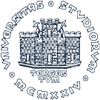 601-700
601-700 


The University of Trieste (Università degli Studi di Trieste), founded in 1924 and consequently a relatively young Institution compared to other Italian Universities, is a medium-sized university based in Trieste, the capital town of the Friuli-Venezia Giulia region of Italy. The university consists of 10 Departments, boasts a wide and almost complete range of university courses and currently has about 19000 students enrolled, 800 teachers, 700 administrative and technical staff. The University of Trieste offers a total of 124 courses, divided in Bachelor Degree courses, Master Degree courses, PhD-Doctorates, Specialization Schools and Professionally Oriented Masters. The University of Trieste currently has 10 Departments: - Economics, Business, Mathematical and Statistical Sciences; - Engineering and Architecture;- Humanities; - Legal, Language, Interpreting and Translation Studies; - Mathematics and Geosciences; - Medicine, Surgery and Health Sciences; - Life Sciences; - Pharmaceutical and Chemical Sciences; - Physics; - Political and Social Sciences. Given its geo-political position, Trieste has always been a cultural crossroad and the University of Trieste carries on this tradition by promoting internationalisation through research, education as well as student and teacher mobility. International cooperation agreements set the rules for faculty and researcher mobility on a basis of mutual recognition. Worldwide partnerships with about 120 universities testify the University’s global networking research activities. The large number of scientific centres located in the Trieste area, such as the International Centre for Theoretical Physics, the I.S.A.S. (International School for Advanced Studies), the Scientific and Technological Research Area, the Italian Synchrotron light laboratory “Elettra”, the International Centre for Genetic Engineering and Biotechnology, the National Institute of Oceanography and Applied Geophysics, not only have contributed to making Trieste “The Town of Science”, but in their search for knowledge also benefit from the activity of university researchers and the University itself, whose main vocation, in turn, is the transmission of knowledge.
 601-700
601-700 
| Subject | Rank |
|---|---|
Physics | 101-150 |
Dentistry & Oral Sciences | 201-300 |
Earth Sciences | 301-400 |
Medical Technology | 301-400 |
Mathematics | 401-500 |
Chemistry | 401-500 |